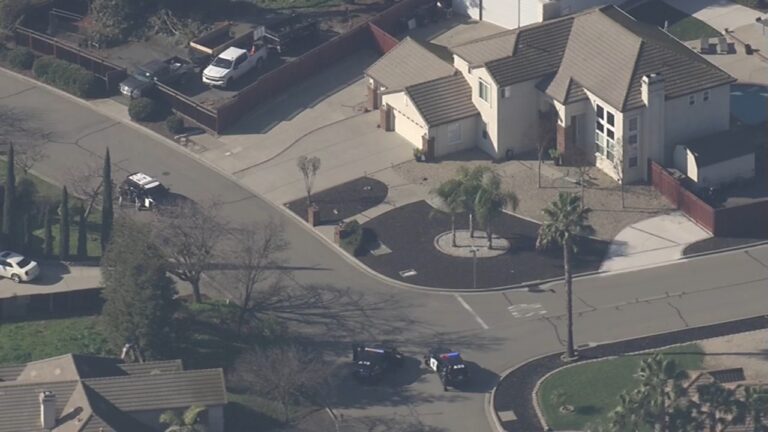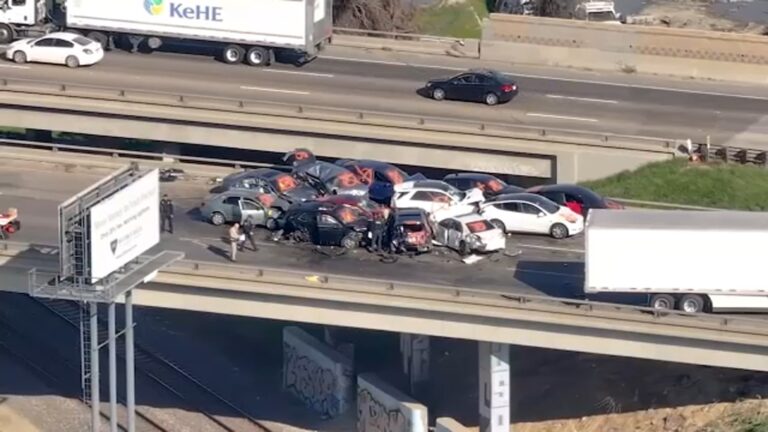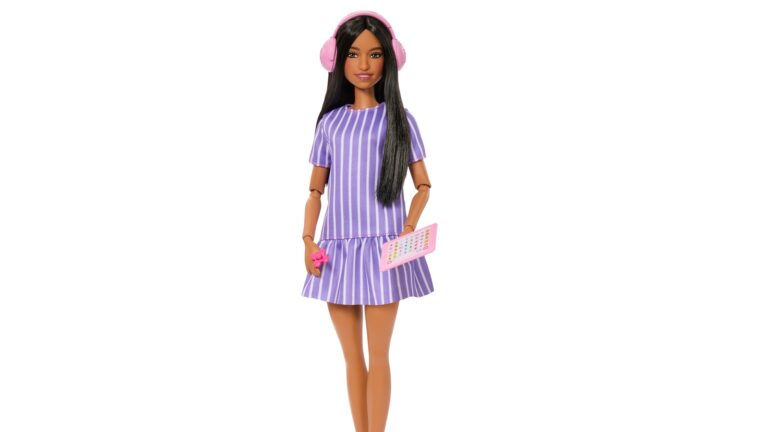
SAN FRANCISCO (KGO) — Levi’s Stadium is hosting next year’s Super Bowl, bringing thousands of spectators to the Bay Area. As always, there will be a security plan in place, including military personnel. Anyone working at the venue will go through a vigorous background check. The National Football League has a few reasons to increase security.
Last July, a man entered the lobby of a Midtown Manhattan building where the NFL has its headquarters.
The 27-year-old man was diagnosed with CTE after years of playing football. He killed three before killing himself.
A month later, the NFL recommended tighter security measures at stadiums and other league facilities.
But even before that, measures were already tight after a man drove a pickup truck into a crowd in New Orleans killing 14 and injuring 57 people last January, one month before that city was scheduled to host the Super Bowl.
The NFL elevated its security measures.
“We came together with unwavering resolve to ensure that the people of New Orleans have a safe, supported and are here to fully enjoy the excitement of Super Bowl 59,” explained Cathy Lanier, Chief Security Officer for the NFL, shortly before the Super Bowl.
MORE: NFL, Bay Area Host Committee announce venues for Super Bowl 60 events
Next year’s Super Bowl at Levi’s Stadium in Santa Clara is expected to have a heavy law enforcement presence and tight restrictions.
Former San Francisco Police Chief Greg Suhr has worked at every Super Bowl for the past 10 years.
“The Super Bowl like Mardi Gras, the World Cup is what they call a SEAR One event, that’s the highest threat level for pre-planned events, period,” said Suhr.
Anyone working security will be fingerprinted, and must provide personal information. The NFL is also using facial recognition. They call it “authentication.”
It’s been a point of contention among a few police unions that are concerned about where that information might end up.
In their monthly journal, the San Francisco Police Officers Association wrote:
“President Wong advised the NFL wants members’ personal information for Super Bowl City. President Wong is fighting this.”
MORE: Santa Clara Co. hosts emergency drill ahead of World Cup, Super Bowl LX
But now since SFPD was told that its officers will not be providing security at Levi’s Stadium, the union is no longer pushing back.
But Las Vegas is. The police union there is telling their officers to not work any of the Raiders home games at Allegiant Stadium.
Here’s their statement. “The Las Vegas Metropolitan Police Department has continued to work with the NFL to find a solution that both agencies could agree on, but we have not come to an agreement at this time. Because of this, the LVMPD is not complying with the NFL’s bio-metric process.”
“Anyone should be concerned about sensitive or bio-metric data being stored in ways that’s not needed potentially whether it’s through a breach or some other improper uses could end up in the wrong hands,” warned Jake Laperruque from the Center for Democracy and Technology.
The NFL told us the information gathered will be disposed of immediately after the Super Bowl.
Ironically, some police departments use facial recognition to help solve crimes and detain a suspect.
Yet some cities, like San Francisco have banned this technology.
MORE: San Jose working to be center stage for global sporting events: ‘Fly here, Stay here, Play here’
The last time, the Bay Area hosted a Super Bowl was 10 years ago and the NFL was not using this type of authentication.
This time, the Santa Clara police, the lead law enforcement agency, has agreed to comply with the mandate.
“We are pleased to have reached a solution with the NFL that preserves the strong, jointly developed security standards of SCPD and the NFL while also addressing the privacy concerns raised by our police union.”
This makes it clear that no one working security at the Super Bowl will be allowed inside without being “authenticated.”
Suhr recalls the time the 49ers were in the Super Bowl in Miami in 2020.
“Mayor Breed went with some guys, great guys, friends of mine, San Francisco Police Department and they were her detail, they thought because they were her detail, they were sworn law enforcement working that they could get in. They weren’t credentialed, they didn’t have a ticket. they were not allowed in,” Suhr recalled.
Then Mayor Breed was able to attend because she had purchased a ticket.
Copyright © 2025 KGO-TV. All Rights Reserved.

Duncan Meyers, founder of BDJOBSTODAY, shares expert career advice, job market insights, and practical tips to help professionals grow and succeed in their careers.




